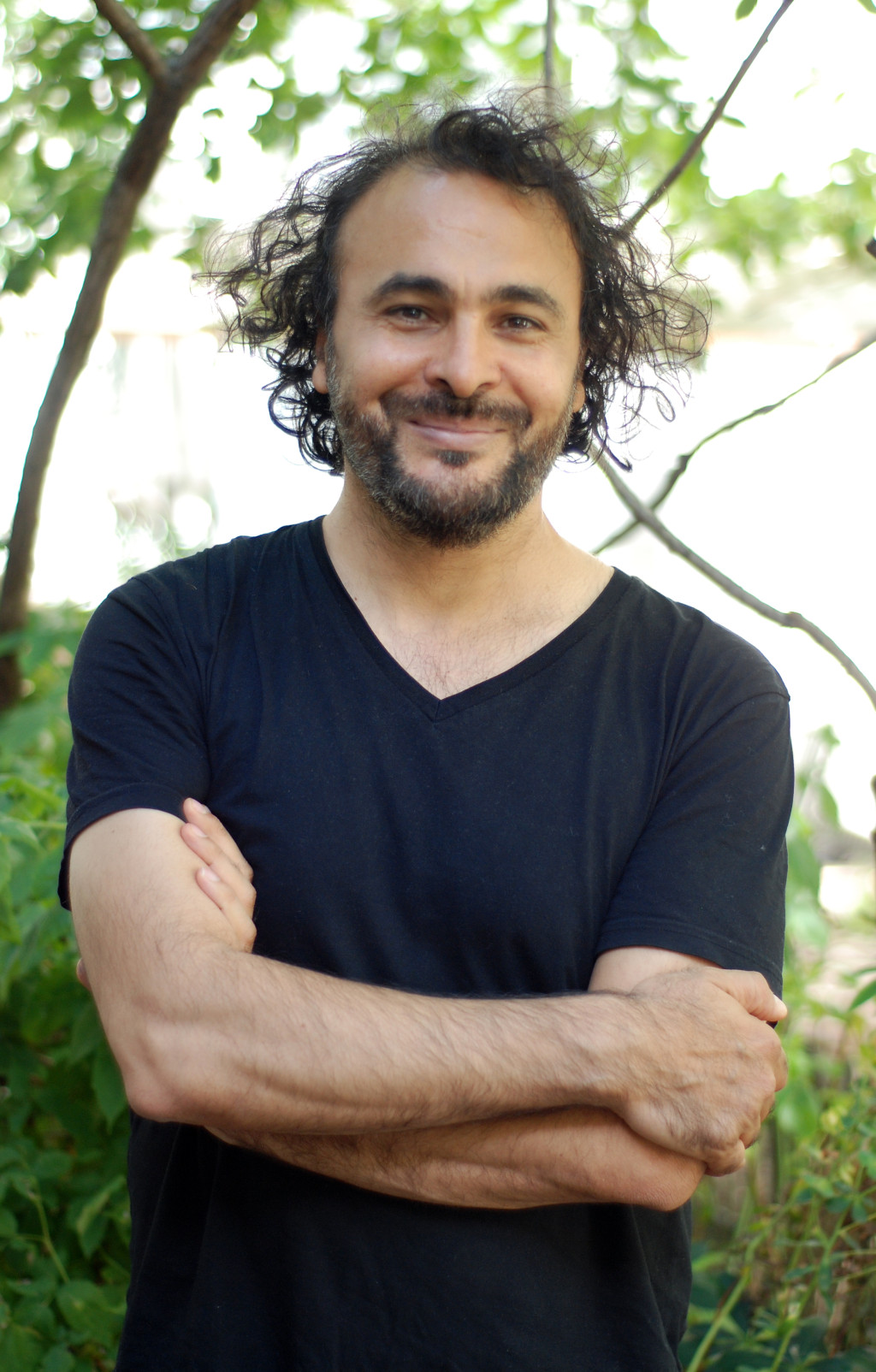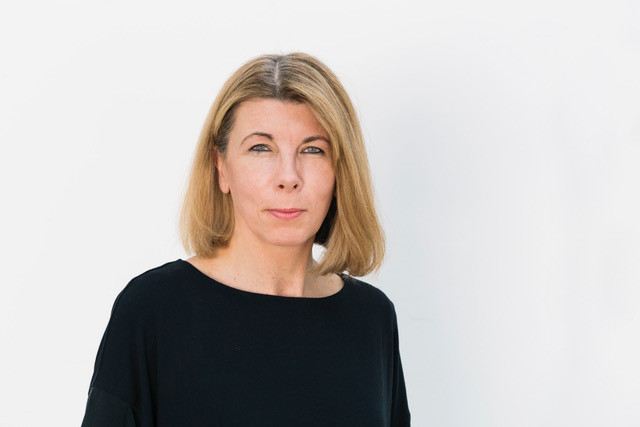Bathtub Lecture: The Museum as a Time Machine
Kader Attia on Notions of Time and Slowing Down
Events — Oct 21, 2023
The annual Badkuip Lecture is a new tradition initiated by the Stedelijk in 2022. As an organization for research and learning, the Stedelijk invites thinkers and artists to explore current questions in the museum sector together. This year we are giving the floor to artist Kader Attia, who wrote his lecture especially for this occasion. Kader Attia will be interviewed by Victoria Walsh.
- Price
- Valid museum ticket + 3 euro
- Location
- Teijin Auditorium
- Time
- Oct 21, 2023, 3.30 pm until 6.30 pm
- Main language
- English
- Admission
- Tickets
How can we understand the relationship between time and the museum? In this lecture, artist Kader Attia examines the Stedelijk imagined as a time machine. A place where time is lost, where time is made, and above all, a nostalgic place that, in its glorification of a linear reading of history, masks all other forms in which time can be experienced. Attia contrasts this museumtime with artistic ways of understanding the time. An artistic concept of time, he argues, has an emancipatory effect on how we experience art and how we write history.
Attia's lecture was specially developed for the annual Badkuip Lecture, a platform where leading thinkers and makers reflect on the big questions currently at stake in the international art world. During this event we will also launch the 13th issue of Stedelijk Studies Journal. The next issue of Stedelijk Studies Journal (#13) will focus on Museum-ing, and presents reflections of thinkers and artists on the idea of museum making as an active process. Kader Attia's art practice fits in seamlessly with these current developments in the museum scene.

Program
- 1 pm
- Visit Prix de Rome exhibition (individually)
- 3 pm
- Doors open auditorium
- 3.30 pm
- Start reading Kader Attia
- 4.15 pm
- Q&A
- 4.30 pm
- Drinks
- 6.30 pm
- End program
We are dealing with urgent questions concerning the role and meaning of the museums of the future. What does a museum present, and in which manner? Which artists are featured and what is the context of the work? Also, this issue reflects on matters of form: What more can a museum be, other than just a place to look at art or attend a lecture? These questions are certainly relevant for the Stedelijk Museum, with its historical collection constantly supplemented with contemporary perspectives.
Everyone agrees that a museum is a time machine, even when it presents contemporary art of its own time. Except in the case of live performances, it offers an experience that is always subsequent to the creation of the works it presents.
From a political, economic, psychoanalytical and artistic point of view, it is this relationship between time and museum that is, in my opinion, one of the major challenges museography is facing today. A temporal issue, which, at a time of uncontrolled expansion of the economy of attention, needs to be stated in an elaborate, multi-disciplinary way, invoking the intersectionality of the environments and fields of research involved. What kind of time are we talking about in this lecture? About lost time, dear to Marcel Proust, as well as of time in the making... Indeed, the nostalgic time fetishized in the museum's relationship with the viewer, through a linear reading of History, conceals other times, those of non-linear intangible experiences.
There are as many times as time itself is infinite. Inventing new temporalities of artistic experience is therefore a matter of emancipating ourselves from the temporal and political framework in which our experience of Art through the museographic framework (mechanism) is kidnapped by a whole orthodoxy of occupation of the imaginary. An orthodoxy that shows by hiding, and hides by showing, other accounts of the History of Mankind. The ones it wants to hide to keep them unthought about, and the ones it uses as references of its narrative’s construction.
Indeed, particularly in Europe, museums are the result of a traumatic colonial history, in terms of the works they display and the collections they hold, even beyond the issue of the restitution of artifacts looted during colonization. Their original raison d'être is the gathering and centralization of knowledge in order to control it, but they are also signs of the enrichment of the West at the expense of other peoples, enabled by the invention of capitalist slavery, which was succeeded by colonization, and which links us today through the economic and political ramifications of these dehumanizing enterprises.
The conquest of modern capitalism over the time and space of humans (as well as non-humans) was built up progressively, in concert with the erection of a Eurocentric vision of culture, of modern hegemonic certainty over other peoples. Since the Age of Enlightenment, enormous buildings have been transformed into museums, or erected as such, and have never ceased to play this opaque role with regard to otherness, to show the beauty of the world through works of art, thereby concealing the horrors of the crimes committed by western civilization... The price of the experience of beauty is quite simply erased from our perception of the world...
But if the museum is a time machine, an artwork is a machine for slowing down time... How can an artwork bring to this topic the horizon it lacks?

Bathtub lecture
We are dealing with urgent questions concerning the role and meaning of the museums of the future. What does a museum present, and in which manner? Which artists are featured and what is the context of the work? Also, this issue reflects on matters of form: What more can a museum be, other than just a place to look at art or attend a lecture? These questions are certainly relevant for the Stedelijk Museum, with its historical collection constantly supplemented with contemporary perspectives.
About Kader Attia
Kader Attia is a multidisciplinary artist who draws upon the lived experiences of two disparate cultural identities: Algerian and French. From this place of cultural intermediacy, Attia’s practice interrogates sociopolitical complexities rooted in histories of colonialism and cultural obfuscation. In his practice, Attia employs poetic installations and sculptural assemblages to investigate the far-reaching emotional implications of western cultural hegemony and colonial systems of power for non-western subjectivities, focusing particularly on collective trauma and notions of repair.
Respondent/interviewer: Victoria Walsh
Victoria Walsh is Professor of Art History and Curating at the Royal College of Art, London, and Head of its Curating Contemporary Art programme. Her research and curatorial projects span the postwar period to the contemporary with a particular focus on the practice and histories of museum curating and gallery education. Amongst her collaborative research and publications is Post-critical Museology: Theory and Practice in the Art Museum (Routledge, 2013) and Transfigurations: Curatorial and Artistic Research in an Age of Migrations (MeLA, 2014) which included a collaboration with Kader Attia, the Whitechapel Gallery and MACBA.

Bathtub Lecture: The Museum as a Time Machine
Book your tickets for the lecture of Kader Attia.
